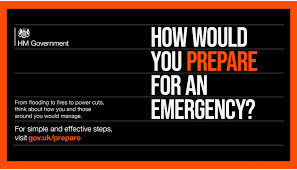What the UK Government Says You Should Stock for Emergencies
In the face of increasing weather extremes, power outages, and unexpected disruptions, the UK government is encouraging households to be better prepared. That means having a small emergency kit on hand – not as a sign of panic, but as a form of practical resilience.
Here’s what officials recommend you stock at home, and why:
The Basics to Keep You Safe and Informed
-
Battery or Wind-Up Torch: Safer than candles during blackouts.
-
Portable Power Bank: Essential for charging your mobile phone when the power is out.
-
Battery or Wind-Up Radio: Helps you stay updated with official guidance. A car radio can also work, but it may be safer to stay indoors during storms.
Medical and Hygiene Essentials
-
First Aid Kit: Include waterproof plasters, bandages, antiseptic, a thermometer, sterile dressings, gloves, tweezers, and tape.
-
Spare Batteries: For your torch, radio, and any vital medical equipment.
-
Hand Sanitiser and Wet Wipes: Important if running water isn’t available.
Water: How Much Do You Need?
There’s no one-size-fits-all amount, but here’s the general guidance:
-
Minimum for survival: 2.5–3 litres per person per day (according to the World Health Organization).
-
More comfortable amount: 10 litres per person per day, to cover basic cooking and hygiene.
-
Remember: You may need more for pets, baby formula, or medical devices.
Food and Baby Supplies
-
Non-Perishable Food: Think ready-to-eat canned meat, fruit, and vegetables. Don’t forget a tin opener.
-
Baby Essentials: Nappies, wipes, and formula – with ready-to-feed options being best if boiling water isn’t possible.
-
Pet Food: Don’t leave your animals out of the plan.

